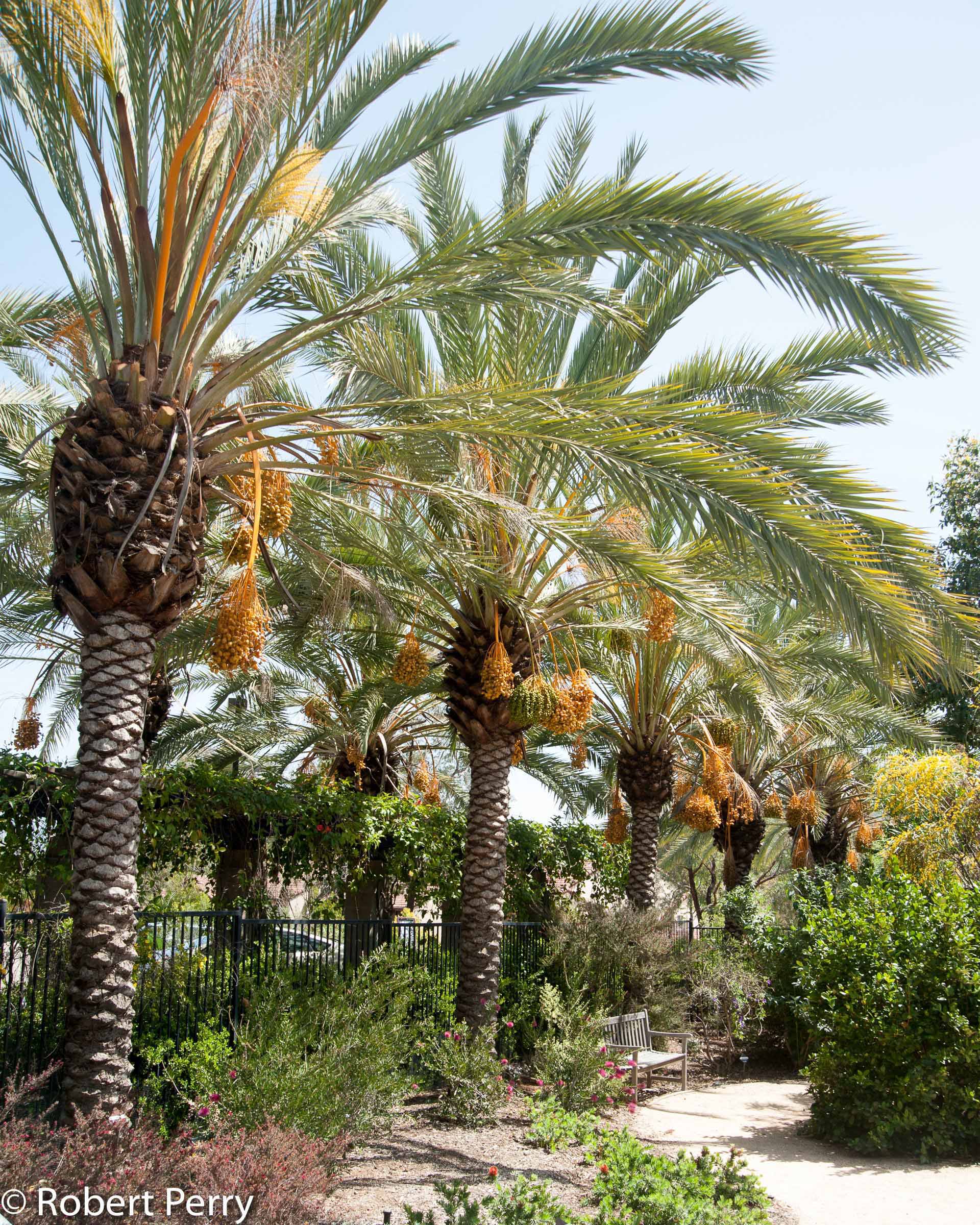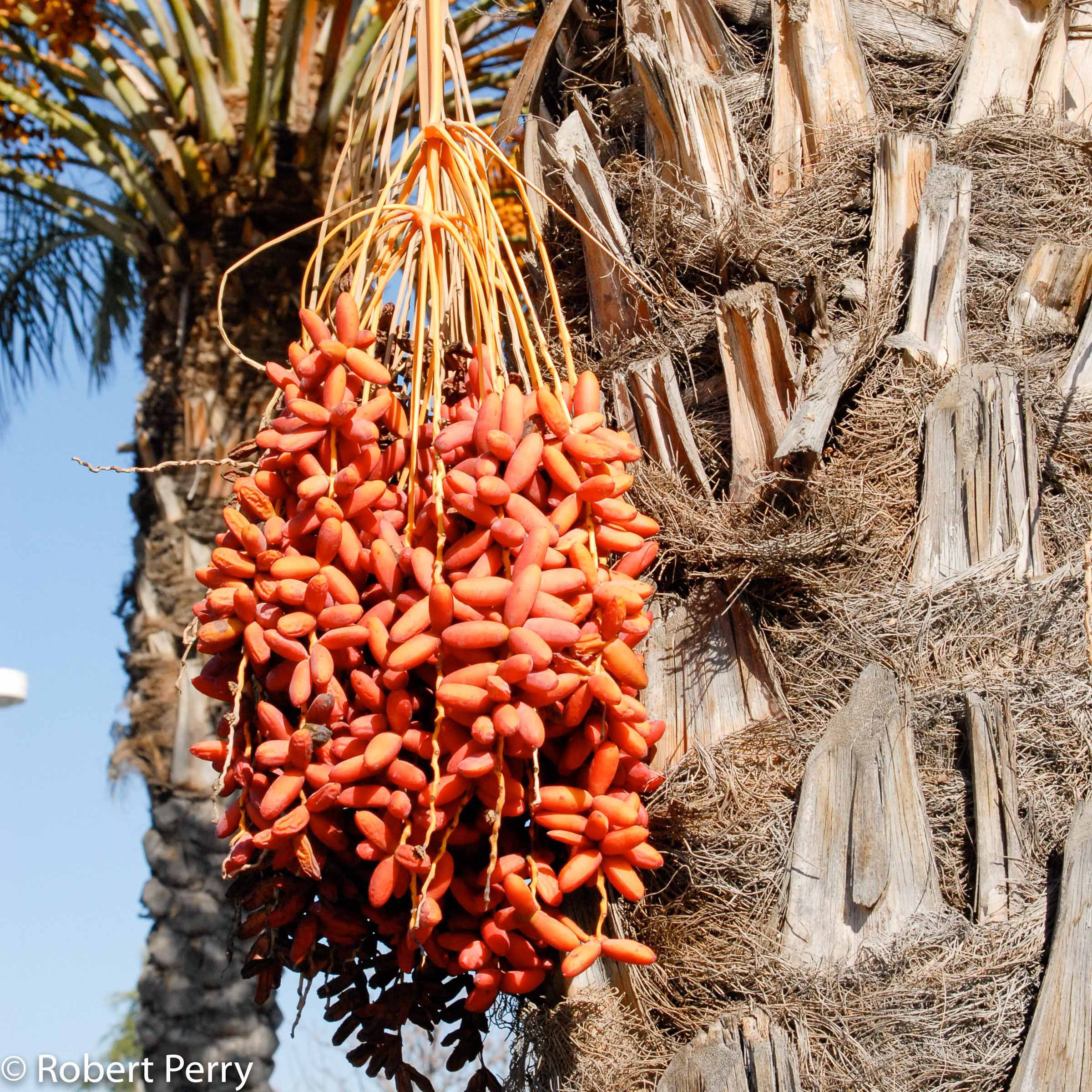Unlocking the Secrets of Phoenix Dactylifera Growth: A Comprehensive Guide
Unveiling Phoenix Dactylifera: The Ancient Date Palm Tree
The Phoenix Dactylifera, commonly known as the date palm, has captivated civilizations for millennia. Its towering presence and sweet, nutritious fruits have made it a symbol of cultural significance. Yet, beneath its captivating exterior lies a fascinating and complex growth cycle that unravels the mysteries behind its remarkable resilience.

Date palm – Waterwise Garden Planner – Source waterwisegardenplanner.org
Addressing Challenges in Phoenix Dactylifera Cultivation
Navigating the cultivation of Phoenix Dactylifera presents several challenges that can hinder its growth and yield. Factors such as water scarcity, nutrient deficiencies, and pests can pose significant obstacles. Understanding these challenges and implementing appropriate measures are crucial for unlocking the full potential of this ancient fruit tree.

Phoenix dactylifera «datilero» – Id Plantae – Source idplantae.blogspot.com
Phoenix Dactylifera: A Journey Through Growth and Development
The growth of Phoenix Dactylifera is a symphony of biological processes that unfold over several years. From seed germination to fruit production, each stage brings forth unique requirements and considerations. Comprehending these stages empowers growers to optimize conditions, maximize yields, and cultivate healthy, thriving date palm trees.

Palmiers, Coachella, Agriculture, Deglet Nour, Dates Benefits, Natural – Source www.pinterest.com
Phoenix Dactylifera Growth Rate: Key Insights and Factors
The growth rate of Phoenix Dactylifera varies depending on environmental conditions, cultivar selection, and cultural practices. Under optimal conditions, date palm trees can reach maturity within 5-7 years, with peak fruit production occurring around 10-15 years. Factors such as temperature, sunlight exposure, soil fertility, and water availability play critical roles in influencing growth rate.

Phoenix Vector, Bird, Phoenix Fire, Dragon Phoenix PNG and Vector with – Source pngtree.com
Phoenix Dactylifera Growth Rate: A Personal Journey and Insightful Explanation
My passion for date palm cultivation led me on a quest to unravel the intricacies of Phoenix Dactylifera growth rate. Through years of observation and experimentation, I delved into the factors influencing growth, from soil composition to irrigation techniques. This journey unveiled the crucial balance between environmental conditions and cultural practices that orchestrate the remarkable growth of this ancient tree.

Date palm – Waterwise Garden Planner – Source waterwisegardenplanner.org
Phoenix Dactylifera Growth Rate: Unveiling the Scientific Foundations
Scientific research has shed light on the physiological mechanisms underpinning Phoenix Dactylifera growth rate. Studies have identified specific genes and enzymatic pathways involved in cell division, shoot elongation, and root development. Understanding these intricate processes enables the development of targeted interventions to enhance growth and yield.

Phoenix dactylifera – Source www.plantmaster.com
Phoenix Dactylifera Growth Rate: History, Myth, and Cultural Significance
Throughout history, Phoenix Dactylifera has held a special place in human cultures. Ancient civilizations revered it as a symbol of fertility, prosperity, and victory. Its fruits were a staple food source, while its leaves and trunks found uses in construction, medicine, and art. This rich cultural heritage weaves a tapestry of history and myth around the growth of this remarkable tree.

Date Palm Fruit – Source ar.inspiredpencil.com
Phoenix Dactylifera Growth Rate: Unlocking the Hidden Secrets
Beyond its practical significance, Phoenix Dactylifera growth rate holds a treasure trove of hidden secrets. Its ability to thrive in harsh, arid environments reveals adaptation mechanisms that hold potential lessons for agricultural resilience. Furthermore, recent studies have uncovered pharmacological properties within date palm extracts, hinting at therapeutic applications in medicine.
Edible Tropicals: How to: Grow Date Palms from Seed – Source www.edibletropicalplants.com
Phoenix Dactylifera Growth Rate: Recommendations for Optimized Cultivation
To cultivate thriving Phoenix Dactylifera trees with optimal growth rates, several recommendations should be considered:
1. Selecting cultivars suited to specific climatic conditions and cultural practices.
2. Providing adequate water supply, particularly during critical growth stages.
3. Maintaining soil fertility through regular nutrient supplementation.
4. Implementing effective pest and disease management strategies.

Gregory Palm Farms: Phoenix Dactylifera! Gregory Palm Farms (714) 814-8525 – Source gregorypalms.blogspot.com
Phoenix Dactylifera Growth Rate: A Comprehensive Examination
Expanding our knowledge of Phoenix Dactylifera growth rate requires a comprehensive examination of its biological processes. This involves:
1. Studying the hormonal pathways regulating growth and development.
2. Investigating the role of environmental factors on growth rate variation.
3. Developing predictive models to optimize cultivation practices and maximize yield.

Sylvester Date – Panorama Tree Care # – Source www.pinterest.com
Phoenix Dactylifera Growth Rate: Tips for Enriching Growth
Enriching the growth of Phoenix Dactylifera involves implementing specific tips:
1. Mulching around the base of the tree to retain soil moisture and regulate temperature.
2. Pruning to remove dead or diseased fronds and open up the canopy for better sunlight penetration.
3. Fertilizing annually to provide essential nutrients for growth and fruit production.
Phoenix Dactylifera Growth Rate: A Deeper Dive
Delving deeper into Phoenix Dactylifera growth rate unveils intricate processes:
1. Root growth occurs primarily during the spring and autumn seasons.
2. Shoot elongation is influenced by light intensity and temperature, with optimal growth occurring in warm, well-lit conditions.
3. Fruit development is a complex process involving pollination, fertilization, and subsequent maturation.
Phoenix Dactylifera Growth Rate: Fun Facts to Marvel At
Phoenix Dactylifera growth rate presents some intriguing fun facts:
1. Date palm trees can live for over a century, with some specimens reaching 300 years of age.
2. A single tree can produce up to 200 pounds of dates per year.
3. Date palm pollen is highly allergenic, and exposure can cause symptoms such as sneezing and itchy eyes.
Phoenix Dactylifera Growth Rate: A Practical Guide to Execution
To successfully achieve Phoenix Dactylifera growth rate, follow these practical steps:
1. Start by selecting healthy seedlings or young trees.
2. Plant in well-drained soil and provide regular irrigation, especially during the first few years.
3. Fertilize regularly with a balanced fertilizer to promote growth and fruit production.
4. Monitor for pests and diseases and implement appropriate control measures.
Phoenix Dactylifera Growth Rate: Exploring the Uncharted Territories
As we continue to explore Phoenix Dactylifera growth rate, new frontiers beckon:
1. Studying the genetic diversity of different date palm cultivars could lead to the identification of genes responsible for enhanced growth rates.
2. Investigating the potential of bio stimulants and plant growth regulators to accelerate growth and improve yield.
3. Developing innovative irrigation techniques to optimize water use and minimize stress during drought conditions.
Question and Answer: Phoenix Dactylifera Growth Rate
1. Q: What is the average growth rate of Phoenix Dactylifera?
A: Under optimal conditions, date palm trees can reach maturity within 5-7 years, with peak fruit production occurring around 10-15 years.
2. Q: What factors influence Phoenix Dactylifera growth rate?
A: Temperature, sunlight exposure, soil fertility, water availability, and cultural practices all play significant roles.
3. Q: How can I improve the growth rate of Phoenix Dactylifera?
A: Selecting suitable cultivars, providing adequate water and nutrients, maintaining soil health, and implementing effective pest management strategies are key.
4. Q: What are some common challenges faced in cultivating Phoenix Dactylifera?
A: Water scarcity, nutrient deficiencies, and pests are among the main challenges that can hinder growth and yield.
Conclusion of Phoenix Dactylifera Growth Rate
Understanding Phoenix Dactylifera growth rate unlocks a world of possibilities for optimizing cultivation, maximizing yield, and harnessing the full potential of this ancient fruit tree. Through scientific research, cultural preservation, and continuous exploration, we can unravel the secrets and wonders that lie within the growth cycle of the majestic Phoenix Dactylifera.


